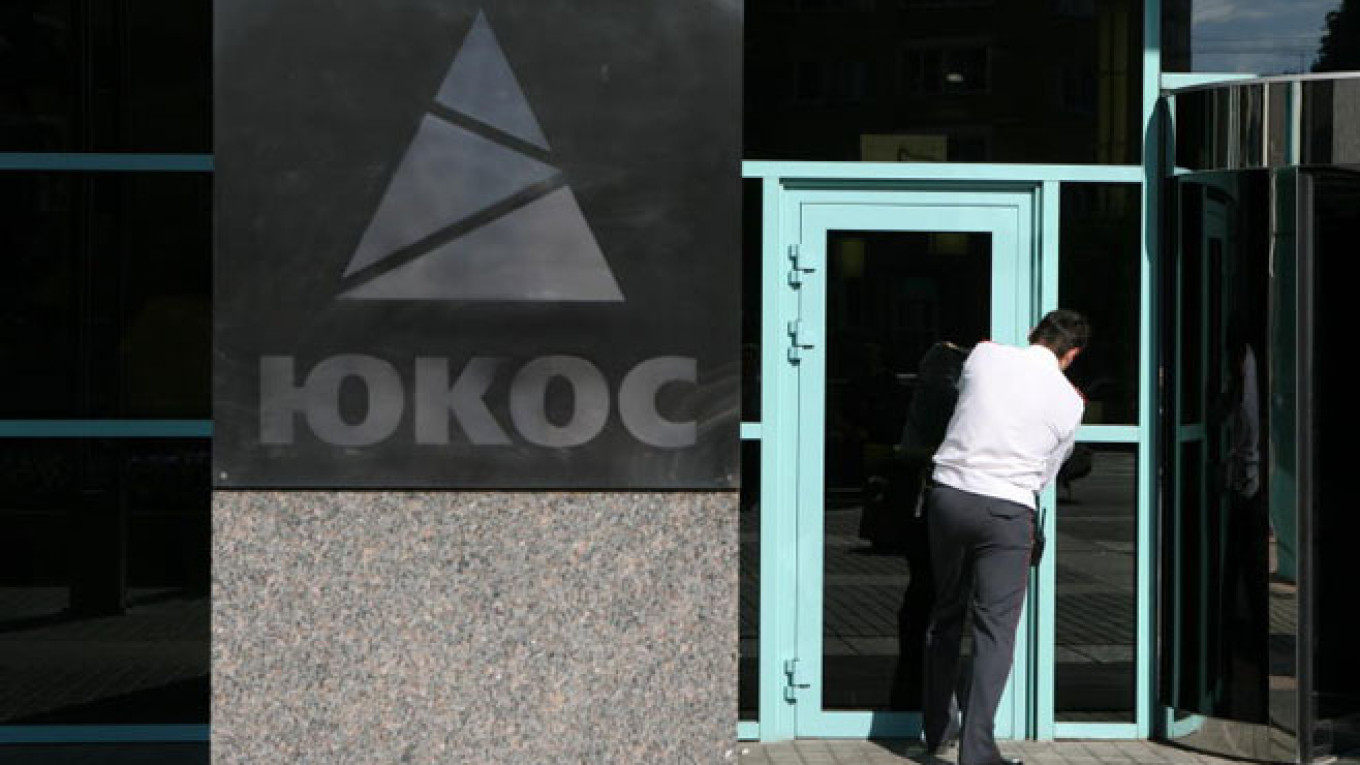Rosneft has settled all disputes with Dutch subsidiaries of defunct oil major Yukos, which was Russia's biggest oil company before it was bankrupted by the Kremlin in the early 2000s.
“Both sides will drop all mutual claims and halt all ongoing legal and other disputes, as well as promise not to press any future claims in connection with the bankruptcy and liquidation of Yukos,” the Rosneft statement said Wednesday.
Yukos lawyer Claire Davidson confirmed that a deal had been reached with Rosneft. The terms of the settlement are confidential, she said.
The deal does not apply to a ruling last year by the Hague's Permanent Court of Arbitration, which found that Russia owed the company's ex-shareholders $50 billion in damages for violations to the Energy Charter Treaty during its dismantling of Yukos.
Neither does it apply to a February court ruling in the Netherlands that found Rosneft owed ex-Yukos shareholders $333 million for losses sustained by a foreign arm of Yukos during the firm's liquidation. ?
Privately owned Yukos, once Russia's biggest oil firm, went bankrupt in the early 2000s after the arrest of its owner, Mikhail Khodorkovsky, in a case widely alleged to have been orchestrated by the authorities in an attempt to stifle the businessman's political aspirations.
State-controlled oil firm Rosneft then became the nation's largest oil firm by sweeping up many of Yukos' assets for bargain-basement prices.
According to Rosneft's statement, Rosneft has settled disputes with the following entities: Yukos Finance, Yukos Capital S.A.R.L., Stichting Administratiekantoor Yukos International, Stichting Administratiekantoor Financial Performance Holdings, Consolidated Nile, General Nile, Yukos International (UK), Luxtona Limited, Financial Performance Holdings, Yukos Hydrocarbons Investments Limited and CN & GN (PTC).
A Message from The Moscow Times:
Dear readers,
We are facing unprecedented challenges. Russia's Prosecutor General's Office has designated The Moscow Times as an "undesirable" organization, criminalizing our work and putting our staff at risk of prosecution. This follows our earlier unjust labeling as a "foreign agent."
These actions are direct attempts to silence independent journalism in Russia. The authorities claim our work "discredits the decisions of the Russian leadership." We see things differently: we strive to provide accurate, unbiased reporting on Russia.
We, the journalists of The Moscow Times, refuse to be silenced. But to continue our work, we need your help.
Your support, no matter how small, makes a world of difference. If you can, please support us monthly starting from just $2. It's quick to set up, and every contribution makes a significant impact.
By supporting The Moscow Times, you're defending open, independent journalism in the face of repression. Thank you for standing with us.
Remind me later.


